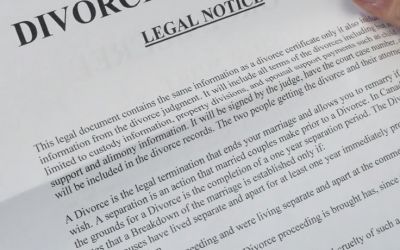Sharia Marriage Rules in the UAE: Key Updates for Couples in 2025
Table of Contents ▼
Missing a single document could delay your wedding by months.
When preparing for a wedding in the UAE, one overlooked document or unawareness of the latest law changes can quickly turn your dream wedding into a bureaucratic nightmare. The UAE updated several critical Sharia marriage rules in 2025, and many couples only discover these changes deep into the process.
For couples hoping to marry according to Islamic principles in the UAE, understanding the current Sharia marriage rules is essential. Recent updates impact everything from documentation requirements to processing timelines, making it crucial to stay informed and prepared.
Understanding Sharia Marriage Rules in the UAE
The UAE operates under a dual legal system where Sharia marriage rules govern personal status matters for Muslim citizens and residents. Marriages, divorces, inheritance, and child custody for Muslims are handled according to Islamic law (Sharia), rather than civil law.
Choosing to marry under Sharia law in the UAE means entering into a contract that has both religious significance and legal weight. This process involves a series of specific requirements, documentation, and steps that must be followed to ensure the marriage is recognized both religiously and legally.
Key Requirements for Sharia Marriage in 2025
Essential Documents You’ll Need
Getting married under the UAE Sharia marriage rules requires meticulous preparation of paperwork. Both parties must provide specific documents based on their residency status:
For UAE Nationals:
- Original Emirates ID
- Family book (Khulasat al-Qaid)
- Medical fitness certificate from an approved healthcare facility
- Pre-marital screening certificate
- No-objection certificate from the family court (if previously married)
For Expat Muslims:
- Valid passport with UAE residence visa
- Attested birth certificate
- Certificate of no impediment to marriage from home country
- Medical fitness certificate
- Pre-marital counseling certificate
- Salary certificate or employment letter
Age and Consent Requirements
The UAE has clear age requirements aligned with Islamic principles while ensuring legal protection. Both parties must be at least 18 years old, though exceptions may be granted with court approval in special cases.
Mental capacity and free consent are mandatory and cannot be waived. Parental consent also plays a role depending on specific circumstances. For first-time brides under 25, parental consent or guardian approval is usually required. This ensures family involvement while safeguarding individual rights.
Recent Updates to UAE Sharia Marriage Laws
2025 Legislative Changes
The UAE continues to evolve its family laws while maintaining Islamic principles. Recent updates have streamlined the documentation process, provided enhanced protection for both spouses, and clarified interfaith marriage guidelines.
One notable change is the expansion of the pre-marital counseling requirement. In 2025, couples must cover financial planning, conflict resolution, and family planning during counseling. These additions reflect the UAE’s commitment to reducing divorce rates and strengthening marital relationships.
Digital Integration and Processing
Embracing technology, the UAE now processes Sharia marriages more efficiently through online platforms. Couples can use integrated systems to book appointments, submit digital documents, and track their application status. This digital shift has made the marriage process quicker and more transparent, allowing couples to stay informed about their wedding status.
The Marriage Contract Process
Nikah Ceremony Requirements
The Nikah ceremony must be performed by an authorized Islamic marriage officer (Ma’zoun). The requirements for the ceremony include:
- Presence of two male witnesses or one male and two female witnesses
- Recitation of marriage contract terms in Arabic
- Agreement on mahr (dower) amount
- Signatures from both parties and witnesses
The mahr is a vital aspect of the marriage contract. It represents the husband’s financial obligation to the wife and serves as a symbol of commitment and security. The amount of mahr can be immediate or deferred, and it must be clearly agreed upon in the marriage contract.
Court Registration
After the Nikah ceremony, the marriage must be registered with the local Sharia court within 30 days. This step transforms the religious ceremony into a legally recognized union under UAE law.
Once the court verifies your documents and ceremony details, they will issue an official marriage certificate. This certificate is crucial for future legal matters, such as visa applications, property purchases, and child registration.
Financial Obligations and Rights
Understanding Mahr and Financial Responsibilities
Mahr is a central concept in Islamic marriage contracts. It’s a financial obligation from the husband to the wife, serving as a symbol of commitment and financial security. The UAE courts recognize both immediate mahr (paid at the time of marriage) and deferred mahr (payable upon divorce or death).
Couples often negotiate the mahr amount based on their circumstances, but the UAE courts typically respect the parties’ agreement while ensuring fairness and compliance with Islamic principles.
Property and Asset Considerations
Under UAE Sharia marriage rules, property ownership remains separate during marriage. Each spouse retains ownership of their assets brought into the marriage and any property acquired individually. However, gifts between spouses and jointly acquired property are subject to specific Islamic guidelines.
Understanding these financial principles before marriage helps couples avoid potential disputes and ensures both parties know their rights and obligations.
Rights and Obligations Under UAE Sharia Marriage Rules
Spousal Rights and Responsibilities
Islamic marriage creates mutual rights and obligations, which the UAE legal system enforces. Husbands have financial obligations, including nafaqah (maintenance), housing, and medical care. Wives are entitled to respectful treatment, financial support, and personal autonomy within Islamic guidelines.
Both spouses share responsibility for child-rearing, mutual consultation on family matters, and maintaining the marriage relationship. The UAE courts actively protect these rights and can intervene in cases of violations.
Child Custody and Parental Rights
Child custody is determined based on Sharia marriage rules, with specific guidelines based on age and circumstances. Recent updates emphasize the best interests of the child, balancing traditional custody principles with considerations like stability, education, and emotional well-being.
Special Circumstances and Considerations
Interfaith Marriage Considerations
The UAE allows Muslim men to marry women from other “People of the Book” (Christians and Jews), provided specific conditions are met. These marriages require additional documentation and follow particular procedures for legal recognition.
For Muslim women, marriage to non-Muslim men requires the husband’s conversion to Islam before the ceremony can proceed under Sharia marriage rules.
Second Marriage Procedures
Polygamy is permitted under Islamic law, but it comes with strict conditions. The UAE has specific procedures for registering subsequent marriages, which include proving financial capability, obtaining consent, and ensuring equal treatment of all wives.
Practical Steps for Your Sharia Marriage
Timeline and Planning
Begin planning your Sharia marriage 2-3 months in advance. Document attestation, medical screenings, and court appointments take time, so starting early reduces stress and ensures all paperwork is properly prepared.
Choosing the Right Ma’zoun
Select an authorized Ma’zoun who understands your unique circumstances. Their experience with similar cases ensures a smoother process.
Common Challenges and Solutions
Document Attestation Issues
Document attestation, particularly from international sources, can be challenging. Allow extra time and consider working with experienced services to navigate complex cases.
Language Barriers
Since all procedures are in Arabic, arrange for certified translations and bring an Arabic-speaking friend or hire a translator for important appointments.
Conclusion
Navigating the Sharia marriage rules in the UAE ensures a smooth wedding process while preserving both religious integrity and legal recognition. Staying updated with the latest 2025 changes guarantees a marriage that meets both Islamic principles and UAE law.
For the most up-to-date guidance and professional support, visit Easy Wedding today and start your Sharia marriage journey.



